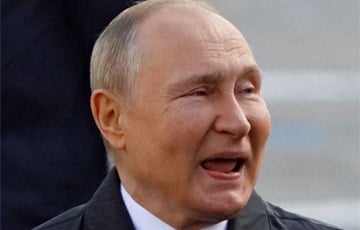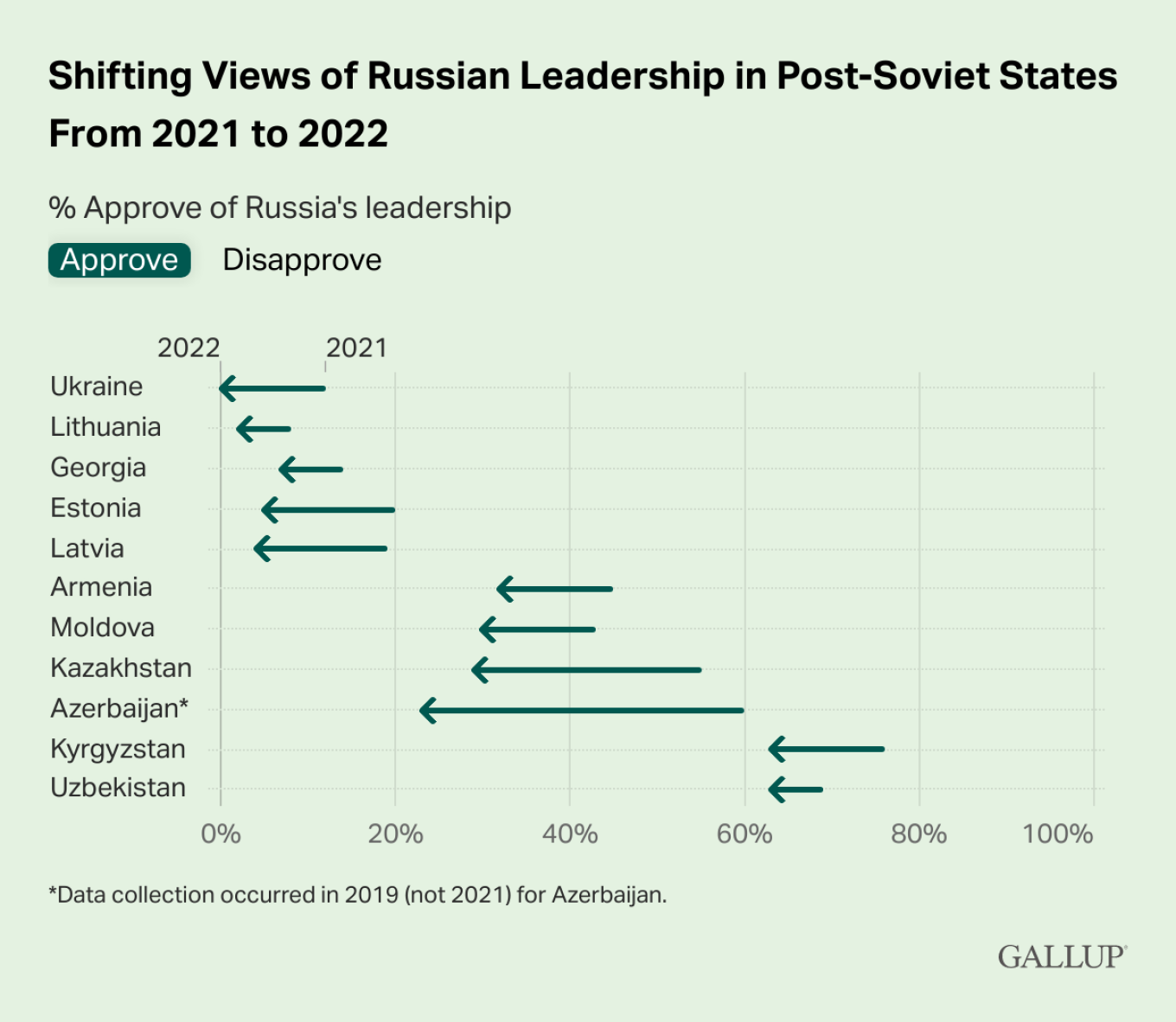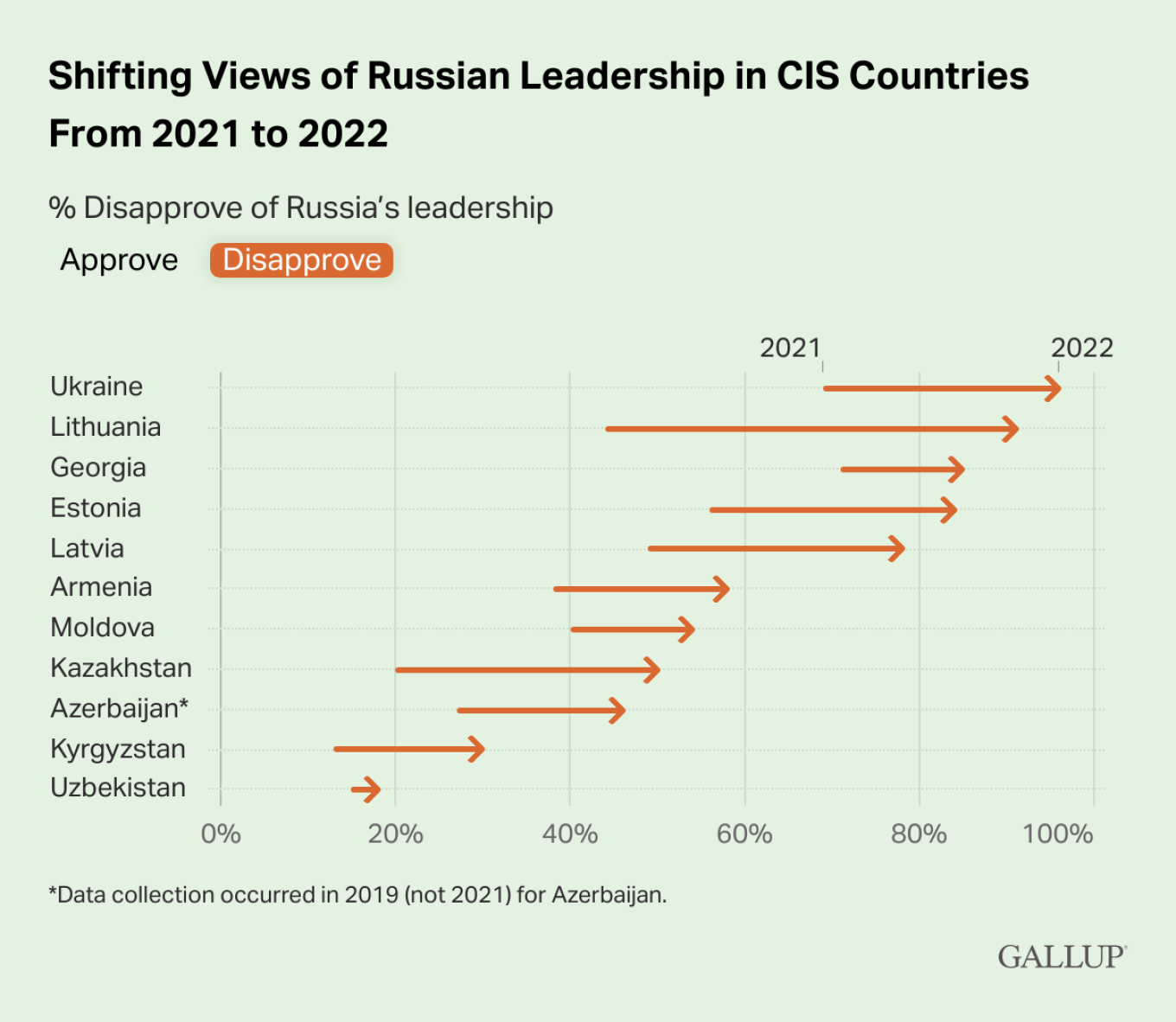Putin's Approval Rating Collapsed In All Former USSR Countries
11- 24.05.2023, 18:12
- 27,052

Including among ethnic Russians.
The leadership of Russia often explains the desire to consider the near abroad as its zone of influence by the need to protect Russians, the Russian language and culture. Vladimir Putin and his associates are ready to fight for the “Russian world”, even destroying the fraternal people, as can be seen from the example of the invasion of Ukraine. Such “concern” is not liked by residents of the countries of the former USSR, including ethnic Russians living in them, show the results of an international Gallup poll, reports The Moscow Times..
The level of approval of the leadership of Russia in 2022 has fallen compared to 2021 in all 11 former Soviet republics where the survey was conducted, while disapproval has risen sharply.
More than 50% of the population looks at Russia positively only in Kyrgyzstan and Uzbekistan, but even there its support has noticeably declined. And, on the contrary, only in these two countries, as well as in Azerbaijan, less than half of the respondents do not approve of the Kremlin's policy, in all other states this figure exceeds 50%. (In Kazakhstan, the percentage of disapproving was 50%, up from 20% in 2021, and approval dropped from 55% to 29%.)
“In the countries that have generally been skeptical of Russian leadership in recent decades—Ukraine, Georgia, and the Baltic states—the gap between those who approve and those who disapprove has become an abyss,” Gallup writes in The Decline of Empire? Russia is losing the support of its own neighbors.” — Meanwhile, in the four countries where the leadership of Russia has historically been treated with sympathy — Armenia, Moldova, Kazakhstan and Azerbaijan, the share of those who disapprove now exceeds the share of those who approve. For example, in Armenia, the level of approval fell by 13 percentage points (from 45% to 32%), while disapproval increased by 20 percentage points (from 38% to 58%).”
Change in the level of disapproval of the Russian leadership, 2021-2022

Change in the level of disapproval of the Russian leadership, 2021-2022

Moreover, in Kazakhstan, Estonia and Latvia, the countries with the largest share of the Russian population, fewer of its representatives declare their disposition to the leadership of Russia. “Russian nationalists believe they have an important mandate to protect members of the diaspora from perceived threats,” Gallup notes, and reveals: last year, for the first time since the collection of such data began in 2005, ethnic Russians in Estonia and Latvia disapproving of the Kremlin's activities outnumbered those who approved: 53% versus 14% and 49% versus 14%, respectively. In Kazakhstan, there are still more people who approve (47% versus 37% who do not approve), but the mood has changed radically over the year: if in 2021 the gap between them was 42 p.p., then in 2022 it is only 10 p.p.
In addition, the Russian diasporas themselves are shrinking because their representatives no longer want to call themselves Russians. In 2007-2009 in Kazakhstan, 33% of the population called themselves Russians, in Latvia — 30%, and in Estonia — 29%. In 2022, there were 15%, 19% and 21%, respectively.
The change in sentiment in the countries of the former USSR generally corresponds to the balance of power in the world. By unleashing the war, Russia has tarnished its image in the eyes of representatives of all regions with the exception of sub-Saharan Africa (but it has faded there too). For the first time in 15 years of polls on attitudes towards world leaders, the majority of the inhabitants of the Earth condemned Putin and his regime, Gallup reported in late April.
While Russia is losing sympathy and influence in neighboring countries, those located in the West are actively moving towards Europe and the United States, and in the south they are drifting towards China. The latter last week held the first face-to-face summit with the leaders of the five Central Asian states. To “ensure peace in the region”, Beijing has pledged defense and security assistance to its neighbors, spicing up its proposals with plans to allocate 26 billion yuan ($3.6 billion) in financial support and “free aid”.
“The world needs a prosperous Central Asia,” said Chinese President Xi Jinping.
Moscow “virtually agreed that they couldn't compete [in this region] at that level,” Raffaello Pantucci, a senior fellow at Singapore's Institute of Defense and Strategic Studies, told The Wall Street Journal. In turn, the countries of Central Asia want to have more opportunities for international cooperation, he said: “It is interesting how openly and with what desire they are seeking the friendliness of China.”









